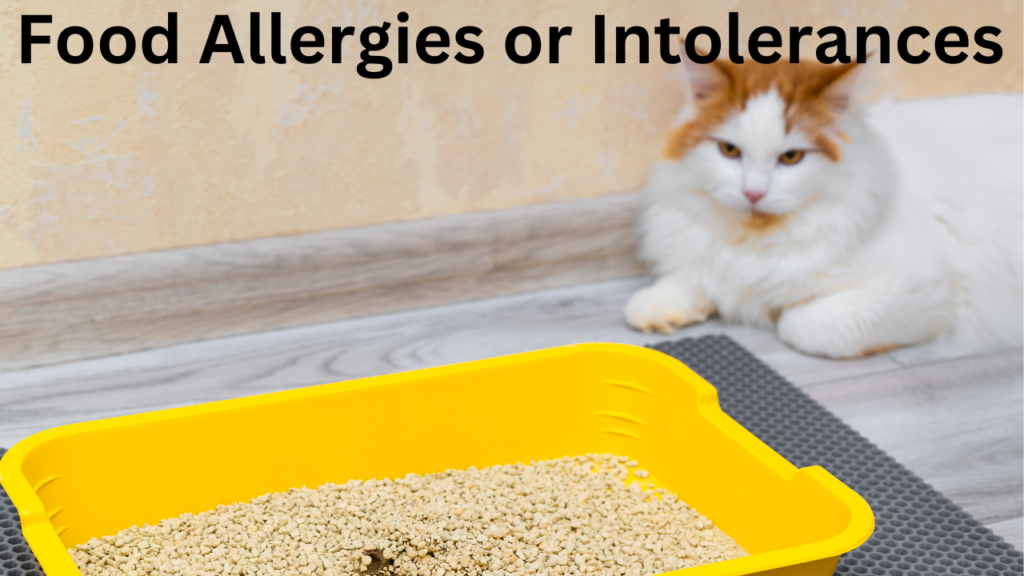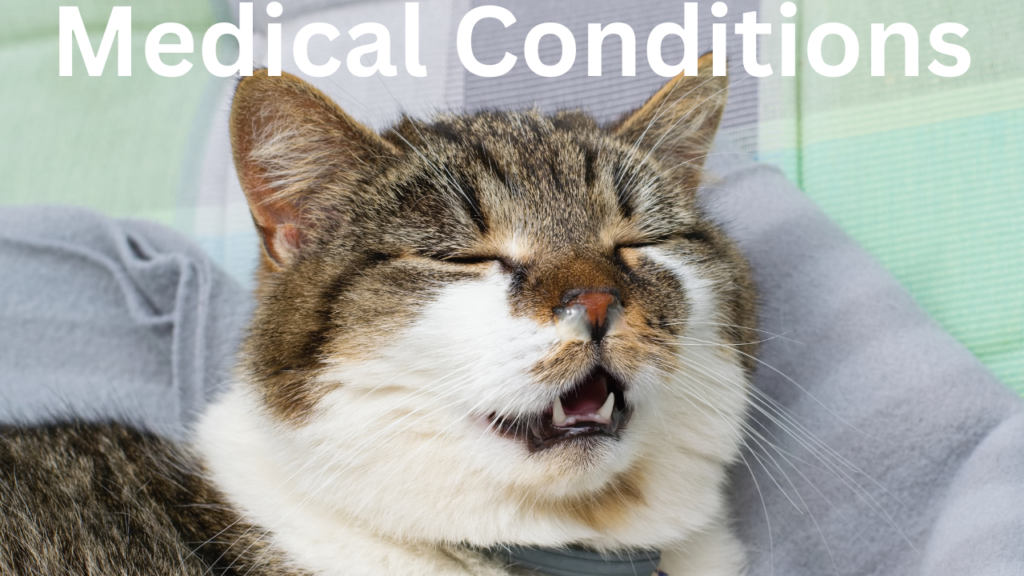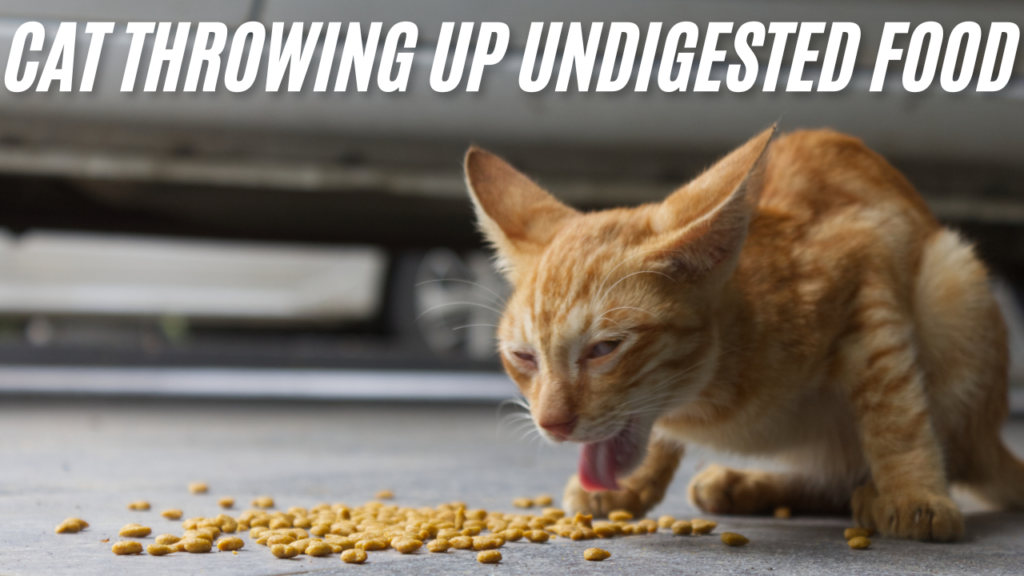As cat owners, we always aim to give the best possible care to our beloved feline companions. However, when they begin vomiting undigested food, it can be alarming. Understanding the possible reasons and knowing how to address them is crucial. This article delves into why your cat might be throwing up undigested food, common causes, and practical solutions.
What does it signify when a cat vomits undigested food?
Vomiting undigested food usually indicates an issue in the digestive system or a related medical concern. Unlike regurgitation, where food is expelled shortly after eating without much effort, vomiting involves active contractions of the abdomen and occurs hours after a meal. Observing the frequency, timing, and consistency of your cat’s vomit can help identify the root cause.
Common Causes of Cats Throwing Up Undigested Food
1. Eating Too Quickly
Cats that gobble their food too fast might vomit undigested food soon after eating. Rapid consumption can overwhelm their esophagus and stomach, leading to regurgitation.
Solution:
- Use a slow feeder bowl or spread food on a flat surface to slow their eating.
- Offer smaller, more frequent meals.
2. Hairballs
Cats groom themselves often, which leads to the ingestion of hair during the process. Excessive hair in their stomach can lead to vomiting, especially if it combines with undigested food.
Solution:
- Provide hairball control cat food or supplements.
- Regularly groom your cat to minimize loose fur ingestion.
3. Food Allergies or Intolerances
Certain ingredients in commercial cat food may not agree with your cat’s digestive system, triggering vomiting. Common allergens include grains, artificial additives, or certain proteins.
Solution:
- Switch to a hypoallergenic or limited-ingredient diet.
- Consult your veterinarian for guidance.

4. Overeating
Some cats overeat, leading to a distended stomach that struggles to hold all the food. This often results in undigested food being expelled.
Solution:
- Monitor portion sizes and avoid free-feeding practices.
- Use automated feeders to provide measured portions throughout the day.
5. Gastrointestinal Issues
Conditions such as gastritis, pancreatitis, or inflammatory bowel disease (IBD) can disrupt digestion and cause vomiting.
Solution:
- Schedule a veterinary check-up for diagnosis and treatment.
- Medications or prescription diets may be required.
6. Stress or Anxiety
Cats are sensitive creatures, and stress can disrupt their digestive processes. Environmental changes, new pets, or loud noises might be triggers.
Solution:
- Establish a stable and peaceful environment to keep your cat comfortable
- Use feline pheromone diffusers to alleviate stress.
7. Parasites
Intestinal worms like roundworms or tapeworms can cause vomiting and other gastrointestinal symptoms.
Solution:
- Ensure regular deworming as per your vet’s recommendation.
- Maintain hygiene in your cat’s environment.
8. Obstructions
Cats are curious by nature and may ingest foreign objects like string, toys, or plants. These can block the digestive tract, leading to vomiting.
Solution:
- Inspect your home for potential hazards.
- Seek immediate veterinary attention if obstruction is suspected.
9. Medical Conditions
Certain diseases, such as kidney disease, liver dysfunction, or hyperthyroidism, can manifest as vomiting.
Solution:
- Regular veterinary screenings for early detection of chronic conditions.
- Follow prescribed treatments for any diagnosed illnesses.

How to Prevent Your Cat from Throwing Up Undigested Food
Maintain a Healthy Diet
Choose high-quality, easily digestible cat food tailored to your cat’s age, size, and health conditions. Avoid frequent diet changes that might upset their stomach.
Feed Consistent Meals
Stick to a consistent feeding schedule to regulate your cat’s digestion. Avoid giving large meals after long gaps.
Encourage Hydration
Dehydration can exacerbate digestive problems. Ensure your cat always has access to fresh water and consider offering wet food to increase fluid intake.
Groom Regularly
Regular grooming reduces the amount of hair your cat ingests, minimizing the risk of hairballs. Use a fine-tooth comb to remove loose fur, especially during shedding seasons.
Veterinary Check-Ups
plan regular vet checkups to keep track of your cat’s health. catching issues early can help avoid serious complications.
When Should You Visit the Vet?
If your cat frequently throws up undigested food or exhibits other symptoms like lethargy, diarrhea, weight loss, or appetite changes, seek professional help immediately. Persistent vomiting could indicate a serious underlying condition that requires prompt medical intervention.
Conclusion
Cats throwing up undigested food is a common issue, but understanding the causes and taking proactive steps can help manage and prevent it. Whether it’s adjusting their feeding habits, changing their diet, or addressing stressors, there are practical solutions available. Always monitor your cat’s behavior and consult a veterinarian for any ongoing concerns.
# : READ ANOTHER POSTS
1 : Can Cats Eat French Fries? A Comprehensive Guide for Pet Owners
2 : Are Maine Coon Cats Hypoallergenic? A Comprehensive Guide
3 : How to Tell If a Stray Cat is Pregnant: Comprehensive Guide for Caregivers


